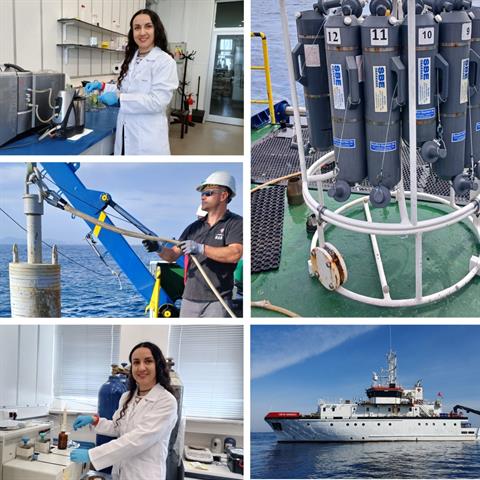Merve Uslu, a graduate student at Istanbul Technical University’s Graduate School of Science, embarked on her academic journey by contributing to a pioneering project aimed at decoding the millennia-old climate memory of the Aegean Sea. Aspiring to specialize in paleoceanography, Uslu gained interdisciplinary scientific experience that spanned from fieldwork to laboratory analysis, and from data processing to scientific interpretation. This journey enhanced both her technical skills and her scientific mindset.
Reflecting on the experience, Merve shares,
"Analyzing sediment cores from the sea, I was fascinated to realize that each layer carried a climatic message from thousands of years ago. This project was not only about acquiring technical skills; it taught me to think like a researcher, collaborate effectively within a team, and work with large datasets."

The TÜBİTAK-supported project titled “Multi-Proxy Investigation of Holocene Climate Records in the Aegean Sea and Assessment of Sensitivity to Future Climate Changes” led by Associate Professor Dr. Demet Biltekin at ITU’s Eurasia Institute of Earth Sciences, examines high-resolution climatic and environmental changes during the Holocene across regions stretching from the northern to southern Aegean Sea. Marine sediment cores collected from the gulfs of Edremit, Güllük, and Gökova are analyzed through a variety of methods including radiocarbon dating, X-ray fluorescence (XRF) spectroscopy, oxygen-carbon isotope analysis, and foraminifera and pollen studies.
These analyses enable the construction of a detailed chronology of the region’s climatic history spanning thousands of years. The overarching goal is to determine the sensitivity of the Aegean Sea to climatic fluctuations and to provide a scientific foundation for future environmental policies and climate projections.
Our graduate students do not only generate scientific data; they gain hands-on field experience, develop critical thinking in the lab, and grow into researchers who will shape the future.